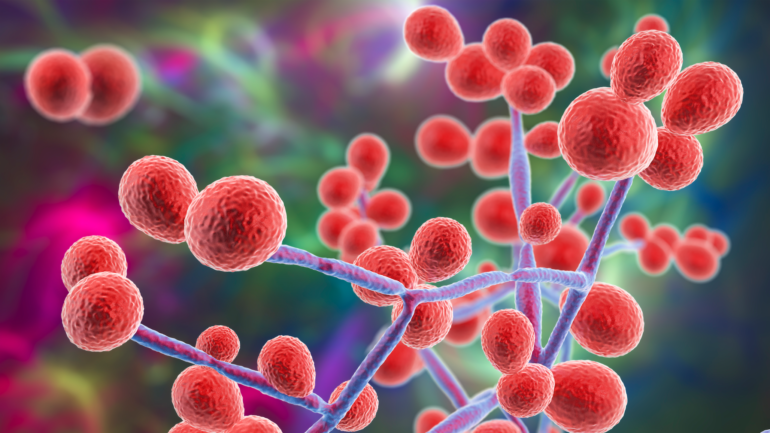TL;DR:
- Artificial Intelligence Support Will be Utilized to Tackle Candida Auris Fungus
- A joint project has been launched by Near East University, Cyprus International University, and Gazi University to determine the sensitivity of Candida auris to antifungal drugs using artificial intelligence and machine learning techniques.
- The project team will create a treatment plan to reduce the risk of infections and prevent antimicrobial resistance.
- Gazi University will provide the necessary laboratory equipment and infrastructure.
- The decision tree creation and artificial intelligence-supported machine learning steps will be carried out by the researchers of the Near East University Health Operations Center and Cyprus International University.
- The use of artificial intelligence in this project provides a new level of precision in determining the most effective treatments for Candida auris.
- This collaborative effort between leading universities and medical professionals represents a crucial step in the fight against Candida auris.
Main AI News:
The Partnership Project to Tackle Candida Auris Fungus
An innovative project aimed at determining the sensitivity of the drug-resistant fungus “Candida auris” to antifungal drugs has been initiated by a collaboration between Near East University, Cyprus International University, and Gazi University. This cutting-edge project will utilize artificial intelligence and machine learning techniques, providing a new level of precision in determining the most effective treatments for this dangerous pathogen.
The Turkish Microbiology Congress held in Antalya in November 2022 was the platform that brought together the researchers from Near East University and Cyprus International University to present their findings and collaborate with Gazi University on this important project. The Gazi University Faculty of Medicine, Department of Medical Microbiology, will provide the necessary laboratory equipment and infrastructure, including a safety cabinet, thermal blocks, DNA/RNA measuring device, and spectrophotometer for DNA and RNA isolation.
The decision tree creation and artificial intelligence-supported machine learning steps will be carried out by the researchers of the Near East University Health Operations Center and Cyprus International University.
This project is supported by Gazi University Scientific Research Projects (BAP) and represents a crucial step in the fight against Candida auris. The collaboration between these leading universities and medical professionals will provide a new level of understanding of this dangerous pathogen, ultimately leading to more effective treatments and improved patient outcomes.
The Artificial Intelligence Project to Combat Candida Auris Fungus
Candida auris, a deadly fungus causing infections in humans, was first identified in the United States in 2009. Its drug-resistant nature has made it a major concern in hospital settings, with a mortality rate estimated by the World Health Organization (WHO) to be between 30% to 60%. This type of fungus, which grows as yeast, can invade the blood circulation, nervous system, and internal organs once it enters the body.
To address this pressing issue, Near East University has launched a joint project to determine the sensitivity of Candida auris to antifungal drugs using artificial intelligence. The project team, consisting of researchers from Near East University and other universities, will work to create a treatment plan that will significantly reduce the risk of infections and prevent antimicrobial resistance.
The use of artificial intelligence in this project provides a new level of precision in determining the most effective treatments for Candida auris. The project will also facilitate the creation of a decision tree and support machine learning techniques, which will aid in the correct use of disinfectants and the control of infections.
This collaborative effort between leading universities and medical professionals represents a crucial step in the fight against Candida auris. The project aims to achieve significant results in controlling and preventing infections caused by this dangerous and drug-resistant fungus.
Conlcusion:
The partnership project to tackle Candida auris fungus, utilizing artificial intelligence support, represents a significant development in the healthcare industry. The use of cutting-edge technologies such as AI and machine learning provides a new level of precision in determining the most effective treatments for this dangerous and drug-resistant fungus. The project, supported by Gazi University Scientific Research Projects (BAP), will bring together leading universities and medical professionals to create a new level of understanding of Candida auris and provide solutions to prevent and control infections caused by this pathogen.
From a market perspective, this project has the potential to drive innovation in the healthcare industry, particularly in the field of antifungal drug development. As Candida auris continues to pose a major threat to public health, the successful implementation of this project could lead to the development of new antifungal drugs, which would be highly valued by the market. Additionally, the project may also lead to the creation of new technologies and techniques that could be used in other areas of healthcare. Overall, the partnership project to tackle Candida auris fungus is a promising development that holds great potential for the healthcare market.

